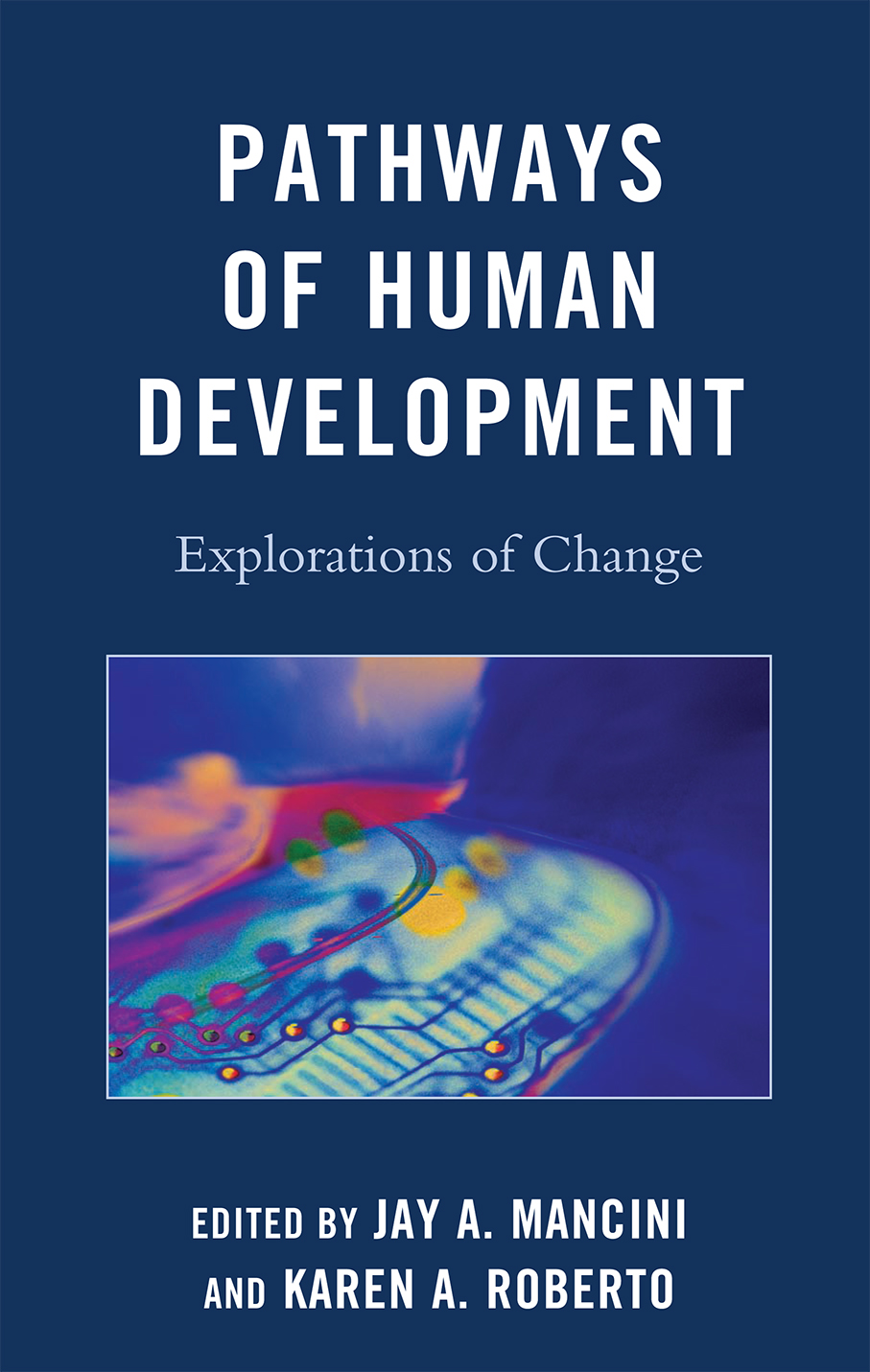New book relates how change is inevitable, but can be controlled to improve quality of life

A new book by faculty members in Virginia Tech's Institute for Society, Culture and Environment and colleagues from across the world explores the contexts within which individuals, families, and communities develop and change – and strategies for improving life.
Pathways of Human Development: Explorations of Change (Lexington Books, 2009) explores the good and the bad of human development, including health and adaptation, social anxiety disorder, risk and protective factors and risk behaviors, parent-child relationships, adolescent sexuality, culture, intergenerational relationships, family stress and adaptation, and community resilience.
"Based on their research, the authors explore the contexts in which individuals, families, and communities develop and change," said the institute’s Director Karen A. Roberto."In addition, the work identifies potential strategies critical for enhancing developmental outcomes and thus, improving quality of individual, family, and community life."
"For example," said, Institute for Society, Culture, and Environment Senior Research Fellow Jay A. Mancini, "Making positive changes in communities is related to community members feeling some responsibility for the well-being of others and working together in ways that improve community life. We have identified four types of communities as a result: synergetic, able, relational, and disengaged. They vary on how well community members come together when there are adverse situations."
The book, which is edited by Mancini and Roberto, is the product of the 2008 Institute for Society, Culture, and Environment summit in Riva San Vitale, Switzerland, which brought together 18 social and behavioral scientists from Virginia Tech, other universities, and the private sector in England, Ireland, and Canada to discuss societal and individual change over the lifespan and investigate critical global issues affecting human development.
Chapter topics related to individuals include "Positive Turning Points in the Dynamics of Change over the Life Course," by Robbie Gilligan, professor of social work and head of the School of Social Work and Social Policy at Trinity College; "Risk and Protective Factors for Drug Use among American Youth," by Kee Jeong Kim, assistant professor in human development in the College of Liberal Arts and Human Sciences at Virginia Tech; and "Social Anxiety Disorder in Youth," by Thomas H. Ollendick, University Distinguished Professor and director of the Child Study Center in the Department of Psychology in the College of Science at Virginia Tech.
"Although social anxiety is not new, and to some extent we all experience socially anxiety at times, what is so important is that the pathway to social anxiety is not direct and it can result from many different influences," said Ollendick. "Some suggest an 'anxiety gene' whereas others look to other biological influences and experiences that occur across development. The context is vitally important," he said. "Even a gene in the absence of an activating context is inert. The disorder is a complex one."
Chapters related to families include "Parenting in Chinese Societies," by Susan Chuang, assistant professor in the Department of Family Relations and Applied Nutrition at the University of Guelph; and "Transformation among Grandparents Raising Grandchildren," by Megan L. Dolbin-MacNab, assistant professor of human development at Virginia Tech.
"Grandparents raising grandchildren experience numerous challenges that can compromise their well-being," said Dolbin-MacNab. "Identifying factors and processes that underlie why some grandparents successfully adapt to raising their grandchildren while others do not is critical to improving outcomes for grandparents and grandchildren alike."
Chapters related to society include "The Dynamics of Families, Social Capital, and Social Change," by Rosalind Edwards, professor in social policy and director of the Family and Social Capital Research Group at London South Bank University; and "From Welfare to Well-Being: Turning Things Around Among Homeless Veterans," by Hugh Milroy, chief executive of Veterans Aid, a United Kingdom-based charity.
Roberto said the book will benefit professionals working in areas related to prevention and intervention. It will also be a resource for professionals researching aspects of human development and teaching upper-level undergraduate and graduate students in the social and behavioral sciences.



.jpg.transform/m-medium/image.jpg)
